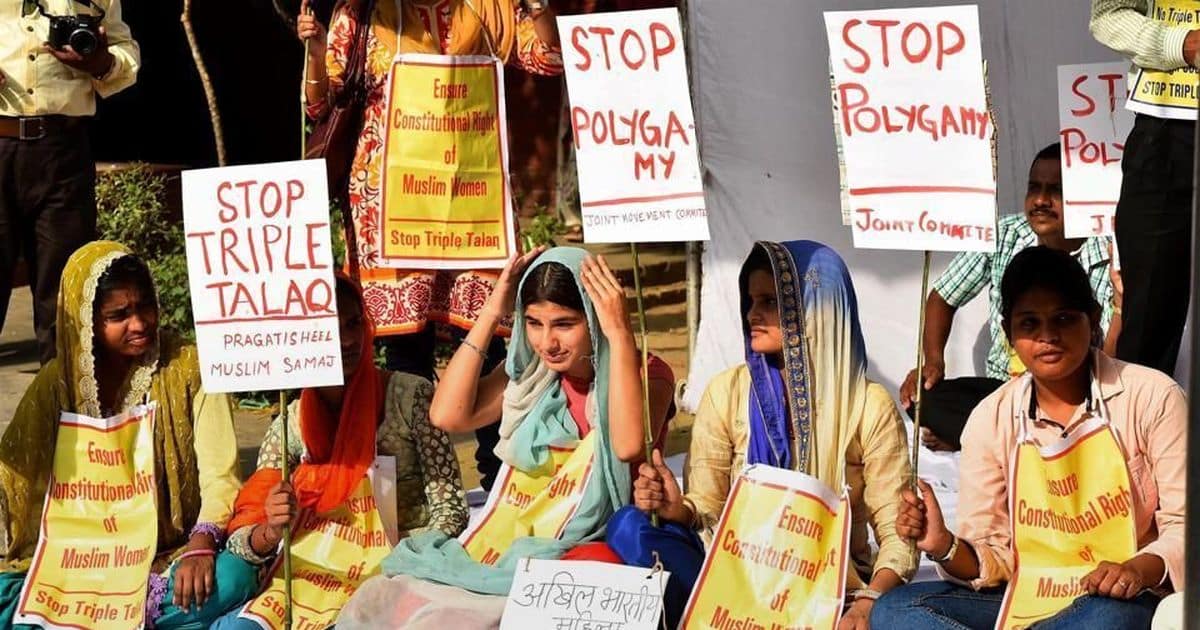What’s in today’s article?
- Why in News?
- The Practice of Polygamy in India
- The Personal Laws
- Indian Penal Code (IPC)
- The Procedure of Filing a Complaint
- A Crucial Exception to the Bigamy Law for Hindus
Why in News?
- According to the Assam government, an expert committee would be formed to examine the issue of practice of polygamy and will ban the practice through “legislative action”.
The Practice of Polygamy in India:
- Meaning:
- Polygamy is the practice of having more than one married spouse (wife or husband).
- Traditionally, polygamy – mainly the situation of a man having more than one wife – was practised widely in India.
- Prevalence in India:
- According to the National Family Health Survey-5 (2019-20), polygamy was 2.1% among Christians, 1.9% among Muslims, 1.3% among Hindus, and 1.6% among other religious groups.
- The highest prevalence of polygynous marriages (marriage in which two or more women share a husband) was in the Northeastern states with tribal populations.
- Laws governing the practice: The issue is governed both by personal laws and the Indian Penal Code (IPC).
The Personal Laws:
- The Special Marriage Act 1954 requires that at the time of marriage neither party has a spouse living.
- The Hindu Marriage Act 1955 outlawed the practice of a man having more than one wife.
- However, despite bigamy being an offence, the child born from the bigamous marriage would acquire the same rights as a child from the first marriage under the law.
- Buddhists, Jains, and Sikhs are also included under the Hindu Marriage Code.
- The Parsi Marriage and Divorce Act 1936 had already outlawed bigamy.
- Marriage in Islam is governed by the Shariat Act 1937, which allows a Muslim man to have four wives.
- To benefit from the Muslim personal law, many men from other religions would convert to Islam to have a second wife.
- However, the Supreme Court (SC) held that religious conversion for the sole purpose of committing bigamy is unconstitutional.
- This position was subsequently reiterated in the 2000 judgement in Lily Thomas v Union of India.
The Indian Penal Code (IPC):
- IPC Section 494 (“Marrying again during lifetime of husband or wife”) penalises bigamy or polygamy with imprisonment up to 7 years and fine.
- This provision does not apply –
- To a marriage which has been declared void by a court.
- If a spouse has been “continually absent” for the “space of seven years”.
- For adulterous relationships that do not qualify as valid marriages under the law.
- Section 495 of the IPC protects the rights of the second wife in case of a bigamous marriage.
- Whoever commits the offence (under Section 494) and has concealed the fact of the former marriage from the person with whom the subsequent marriage is contracted, shall be punished with imprisonment up to 10 years and fine.
The Procedure of Filing a Complaint:
- Generally, the first wife files a complaint that her husband has remarried.
- The court will have to look into whether the husband has entered into a legally valid second marriage.
- The SC reiterated the legal position that the standard of proof must be of marriage performed as per customs.
A Crucial Exception to the Bigamy Law for Hindus:
- Goa follows its own code for personal laws. So, a Hindu man in the state has the right to bigamy under specific circumstances mentioned in the Codes of Usages and Customs of Gentile Hindus of Goa.
- These circumstances include a case where the wife fails to conceive by the age of 25 or if she fails to deliver a male child by the age of 30.
- However, as per the Goa government, the provision for Hindus is virtually “redundant” and no one has been given the benefit of it since 1910.
Q1) Which state/s in India has/have Uniform Civil Code?
Goa is the only state in India which has a uniform civil code. The Goa Family Law, is the set of civil laws, originally the Portuguese Civil Code, continued to be implemented after its annexation in 1961.
Q2) What is the Lily Thomas v Union of India case (2000)?
The Court held that when a second marriage is contracted by a Hindu husband after conversion, he does not do so because of his conscience and that such a conversion is manifestly fraudulent. Therefore, it was laid down that such a marriage was void and invalid due to the violation of Article 21.
Last updated on December, 2025
→ Check out the latest UPSC Syllabus 2026 here.
→ Join Vajiram & Ravi’s Interview Guidance Programme for expert help to crack your final UPSC stage.
→ UPSC Mains Result 2025 is now out.
→ UPSC Notification 2026 is scheduled to be released on January 14, 2026.
→ UPSC Calendar 2026 is released on 15th May, 2025.
→ The UPSC Vacancy 2025 were released 1129, out of which 979 were for UPSC CSE and remaining 150 are for UPSC IFoS.
→ UPSC Prelims 2026 will be conducted on 24th May, 2026 & UPSC Mains 2026 will be conducted on 21st August 2026.
→ The UPSC Selection Process is of 3 stages-Prelims, Mains and Interview.
→ UPSC Result 2024 is released with latest UPSC Marksheet 2024. Check Now!
→ UPSC Prelims Result 2025 is out now for the CSE held on 25 May 2025.
→ UPSC Toppers List 2024 is released now. Shakti Dubey is UPSC AIR 1 2024 Topper.
→ UPSC Prelims Question Paper 2025 and Unofficial Prelims Answer Key 2025 are available now.
→ UPSC Mains Question Paper 2025 is out for Essay, GS 1, 2, 3 & GS 4.
→ UPSC Mains Indian Language Question Paper 2025 is now out.
→ UPSC Mains Optional Question Paper 2025 is now out.
→ Also check Best IAS Coaching in Delhi

















